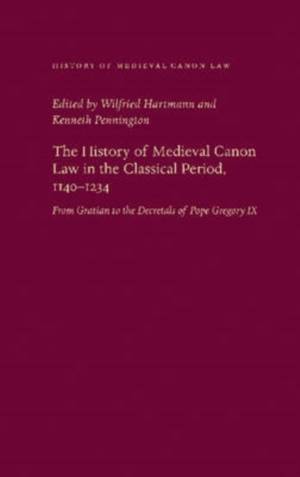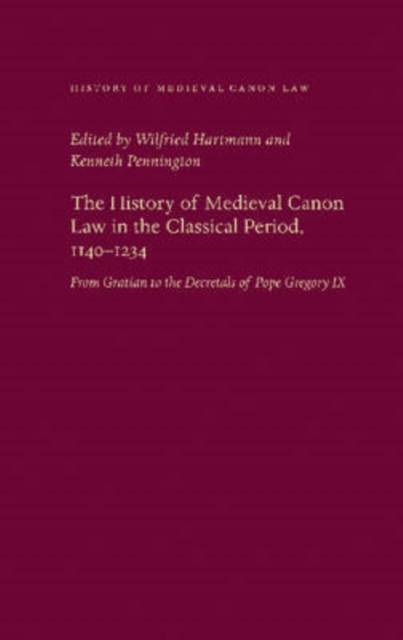
- Retrait gratuit dans votre magasin Club
- 7.000.000 titres dans notre catalogue
- Payer en toute sécurité
- Toujours un magasin près de chez vous
- Retrait gratuit dans votre magasin Club
- 7.000.000 titres dans notre catalogue
- Payer en toute sécurité
- Toujours un magasin près de chez vous
The History of Medieval Canon Law in the Classical Period, 1140-1234
From Gratian to the Decretals of Pope Gregory IX
120,95 €
+ 241 points
Description
Gratian has long been called the Father of Canon Law. This latest volume in the ongoing History of Medieval Canon Law series covers the period from Gratian's initial teaching of canon law during the 1120s to just before the promulgation of the Decretals of Pope Gregory IX in 1234. Gratian's contributions to the birth of canon law and European jurisprudence were significant: he introduced a new methodology of teaching law by using hypothetical cases and by integrating--and inserting in the texts themselves--his own comments on the canons. He also used the dialectical method to analyze legal problems that he raised in his cases. Though this methodology was first developed by Peter Abelard and others in the schools of Northern France, Gratian was the first to apply it to legal texts with the publication of his Decretum (ca. 1140). Because the Decretum was not just a collection of texts but an analysis of the sources and doctrines of ecclesiastical law, his book enjoyed immediate success across Europe. The Decretum was adopted by teachers from England to Italy and Germany to Spain. Gratian's successors later applied his methodology to the papal appellate decisions (decretals) that gradually became the foundation of canon law in the later Middle Ages. In this volume, distinguished legal historians contribute noteworthy essays on the commentaries on Gratian, the beginnings of decretal collections and commentaries on them, and the importance of conciliar legislation for the growth of canon law. There are also chapters on the influence of Roman law on canon law and the teaching of canon law in law schools.
Spécifications
Parties prenantes
- Editeur:
Contenu
- Nombre de pages :
- 458
- Langue:
- Anglais
- Collection :
Caractéristiques
- EAN:
- 9780813214917
- Date de parution :
- 18-06-08
- Format:
- Livre relié
- Format numérique:
- Genaaid
- Dimensions :
- 160 mm x 240 mm
- Poids :
- 762 g






